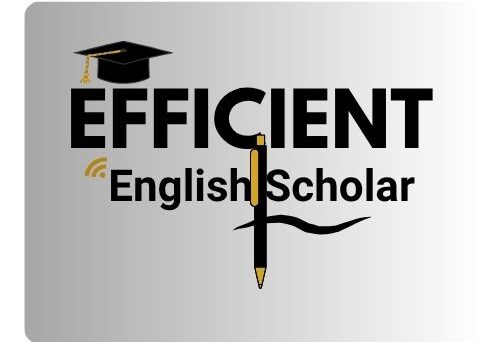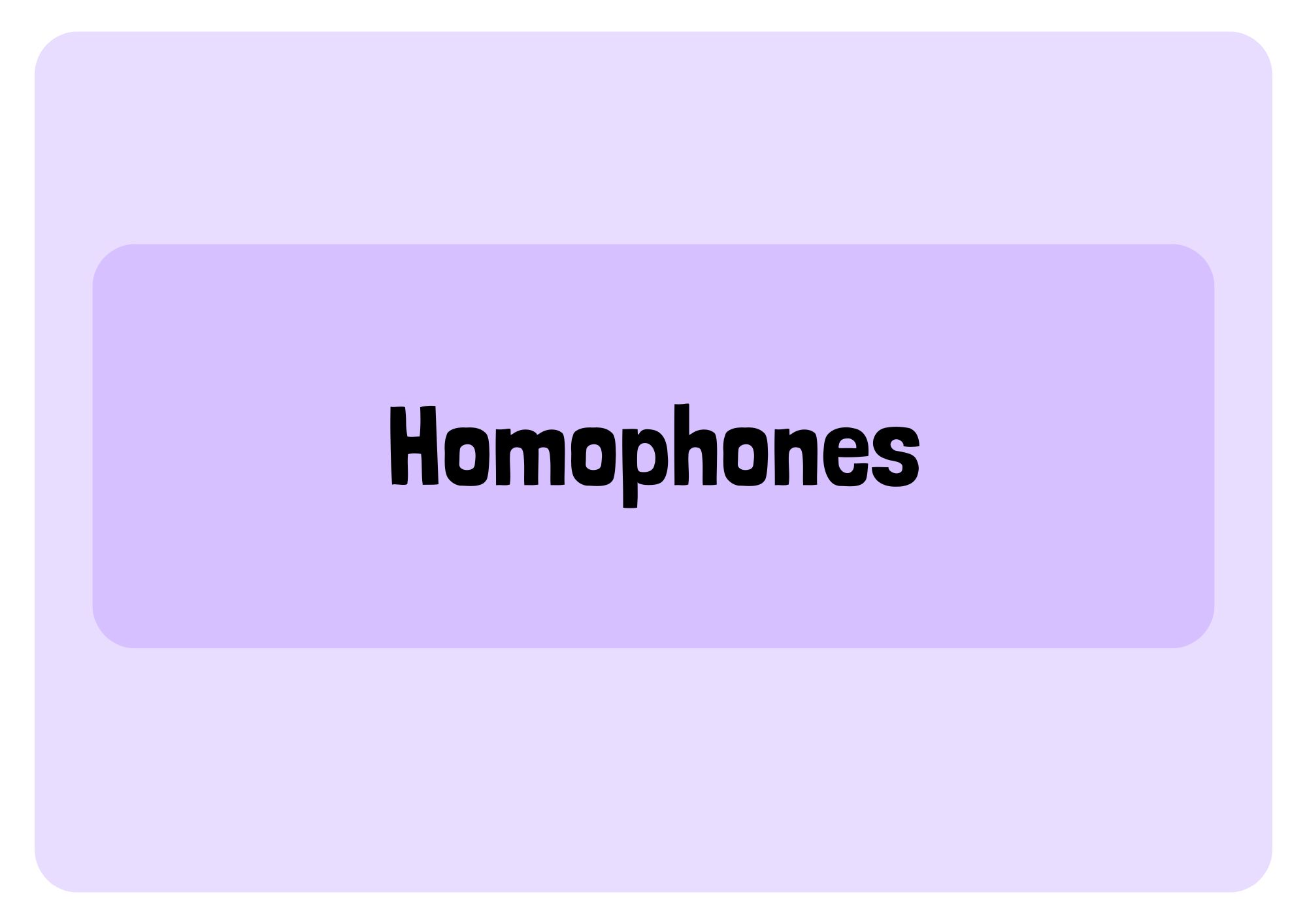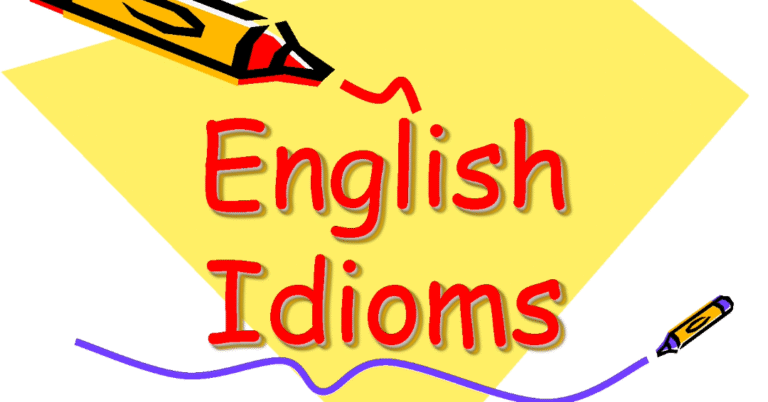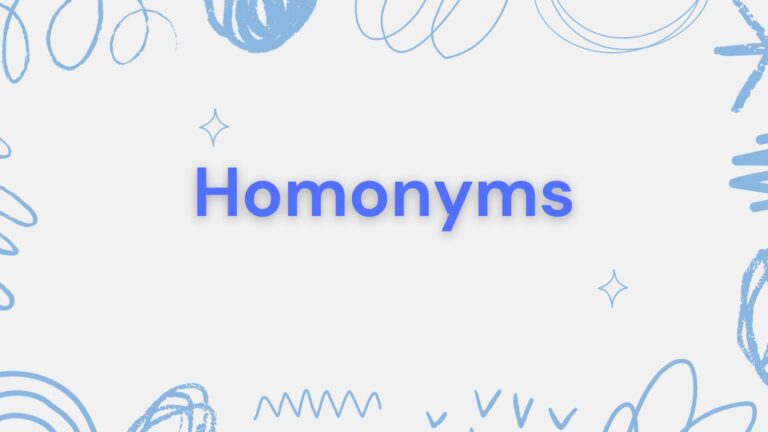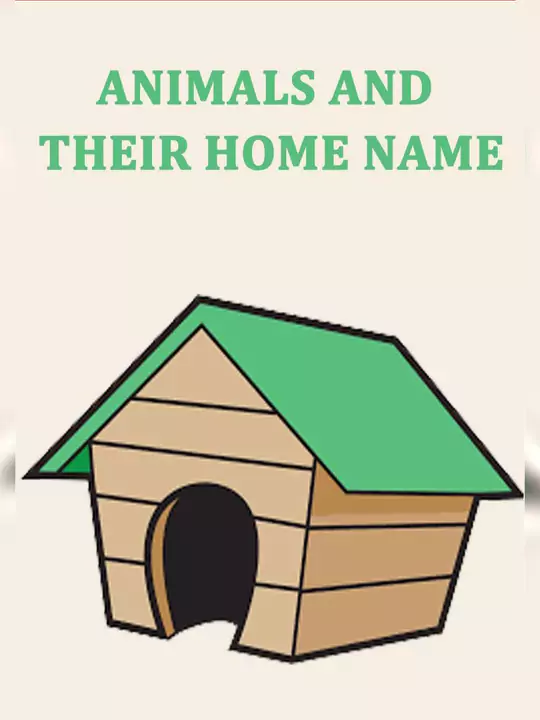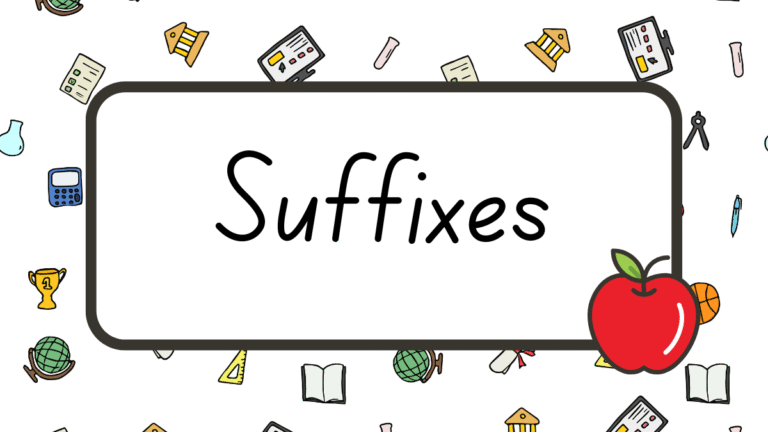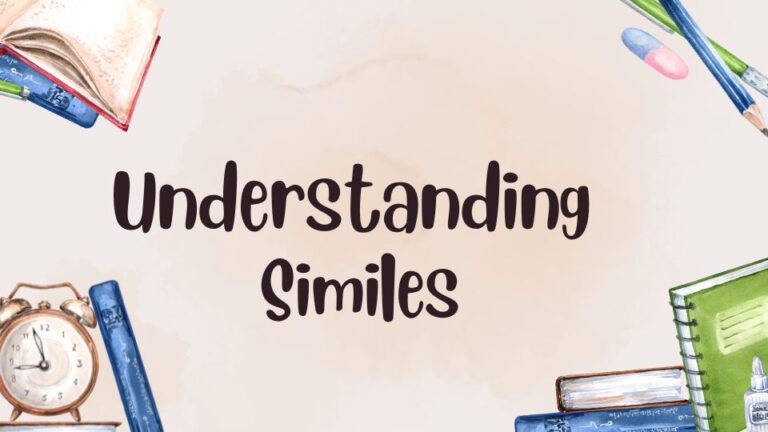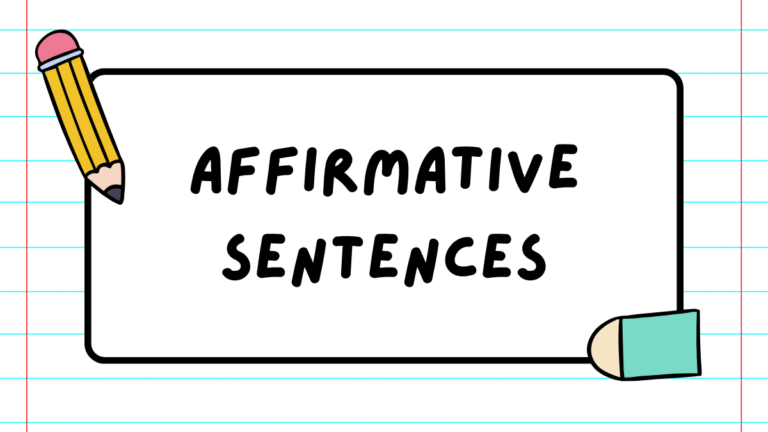List of Homophones you need to Know
This article presents a list of homophones to improve communication. Knowing these words helps prevent misunderstandings and mistakes, making conversations clearer.
Introduction to Homophones
Homophones are words that sound the same but have different meanings and spellings, like “pair” and “pear.” They can lead to funny misunderstandings and are often used in jokes.
List of Homophones
Here is a list of homophones.
- Ate: past of eat – Eight: number 8
- Bare: uncovered –Bear: animal
- Be: to exist – Bee: insect
- Blew: past of blow / Blue: color
- Buy: to purchase –By: beside
- Bye: goodbye –Buy: purchase
- Cell: small room –Sell: exchange for money
- Cent: coin –Scent: smell
- Cereal: breakfast food –Serial: in a sequence
- Close: to shut –Clothes: garments
- Deer: animal –Dear: beloved
- Die: stop living –Dye: color fabric
- Fair: just –Fare: fee for transport
- Flour: baking powder –Flower: blooming plant
- Flew: past of fly –Flu: illness
- Gait: walking style –Gate: entrance
- Hair: on head –Hare: rabbit-like animal
- Heal: recover –Heel: part of foot
- Hear: to listen –Here: in this place
- Him: male pronoun –Hymn: religious song
- Hole: opening –Whole: complete
- Hour: 60 minutes –Our: belonging to us
- Idle: inactive –Idol: a person admired
- Knight: nobleman –Night: evening time
- Know: to understand –No: opposite of yes
- Lead: to guide –Led: past of lead
- Leak: escape of liquid –Leek: vegetable
- Mail: postal service –Male: gender
- Meat: flesh –Meet: to encounter
- Morning: early day –Mourning: grief
- None: nothing –Nun: religious woman
- One: number –Won: past of win
- Pair: set of two –Pear: fruit
- Peace: calm –Piece: part of something
- Plain: simple –Plane: aircraft
- Poor: not rich –Pour: spill liquid
- Pray: to worship –Prey: hunted animal
- Principal: school head –Principle: rule
- Right: correct –Write: to form letters
- Rain: water from sky –Reign: rule
- Rein: control strap –Rain: falling water
- Road: street –Rode: past of ride
- Rowed: paddled – Road: path for vehicles
- Sail: boat movement –Sale: discount
- Scene: part of play –Seen: observed
- Sea: ocean –See: to view
- Sew: to stitch –So: therefore
- Sow: to plant –So: also
- Son: male child –Sun: star
- Stake: wooden post –Steak: meat slice
- Stare: long look –Stair: step
- Their: belonging to them –There: place
- They’re: they are –There: location
- Threw: past of throw –Through: across
- Toe: part of foot –Tow: to pull
- Too: also –Two: number
- To: direction –Too: also
- Vain: proud –Vein: blood vessel
- Vane: weather blade –Vein: tube in body
- Wait: to pause –Weight: mass
- Weak: not strong –Week: 7 days
- Wear: to put on –Where: in what place
- Which: choice word –Witch: magic user
- Yolk: egg center –Yoke: harness
- You: pronoun –Ewe: female sheep
- Yew: type of tree –Ewe: sheep
- Aloud: spoken –Allowed: permitted
- Bald: no hair –Bawled: cried loudly
- Board: flat surface –Bored: not interested
- Colonel: army rank –Kernel: seed part
- Coarse: rough –Course: path or class
- Faze: to disturb –Phase: stage
- Grate: shredder –Great: excellent
- Guessed: assumed –Guest: visitor
- Lessen: reduce –Lesson: learning unit
- Maid: servant –Made: created
- Miner: digs for minerals –Minor: underage
- Muscle: body tissue –Mussel: sea animal
- Passed: went by –Past: previous time
- Pause: stop –Paws: animal feet
- Plain: simple –Plane: aircraft
- Raise: lift up –Rays: beams of light
- Read: interpret text –Reed: tall grass
- Real: true –Reel: spool for winding
- Right: correct –Rite: ceremony
- Ring: circle –Wring: twist forcibly
- Root: plant part –Route: path
- Scene: view –Seen: observed
- Sole: only –Soul: spiritual part
- Stationary: not moving –Stationery: writing supplies
- Steal: take –Steel: metal
- Tail: back of animal –Tale: story
- Team: group –Teem: be full of
- Tied: fastened –Tide: sea level
- Waist: body part –Waste: trash
- War: battle –Wore: past of wear
- Warn: to alert –Worn: used up
- Way: method –Weigh: measure weight
- Weak: fragile –Week: 7 days
- Weather: climate –Whether: if
- Whine: complain –Wine: drink
- Wood: tree part –Would: verb form
- Allowed: permitted –Aloud: out loud
- Blue: color –Blew: past of blow
- Capital: city or money –Capitol: government building
- Cite: to reference –Site: location
- Complement: goes well with –Compliment: praise
- Die: stop living –Dye: color
- Discreet: careful –Discrete: separate
- Elude: escape –Allude: refer to indirectly
- Formally: in a proper way –Formerly: previously
- Here: in this place –Hear: to listen
- Holey: with holes –Holy: sacred
- Its: possession –It’s: it is
- Medal: award –Meddle: interfere
- Mettle: courage –Metal: material
- Peak: top –Peek: glance
- Plain: flat land –Plane: aircraft
- Profit: money gain –Prophet: religious messenger
- Rain: falling water –Rein: control strap
- Seam: line where parts join –Seem: appear
- Sight: vision –Site: place
- Soar: fly high –Sore: painful
- Stare: gaze –Stair: step
- Sundae: ice cream dessert –Sunday: day of the week
- Tacks: small nails –Tax: government fee
- Vial: small bottle –Vile: disgusting
- Wait: pause –Weight: heaviness
- War: battle –Wore: past of wear
- Waste: garbage -Waist: body part
- Weak: not strong –Week: 7 days
- Weather: climate –Whether: if
- Wood: tree material – Would: verb form
- Yoke: harness –Yolk: egg part
- You: person –Ewe: sheep
- Bark: dog sound –Bark: tree outer layer
- Bat: flying mammal –Bat: used in sports
- Spring: season –Spring: bounce
- Well: healthy –Well: water source
- Watch: timepiece –Watch: to observe
- Match: competition –Match: small fire stick
- Left: direction – Left: past of leave
- Right: correct –Right: direction
- Rock: stone –Rock: genre of music
- Light: brightness – Light: not heavy
- Can: container – Can: able to
- Well: healthy – Well: water hole
- Trip: journey – Trip: stumble
- Bark: outer tree layer – Bark: dog’s sound
- Bear: animal – Bear: to carry or endure
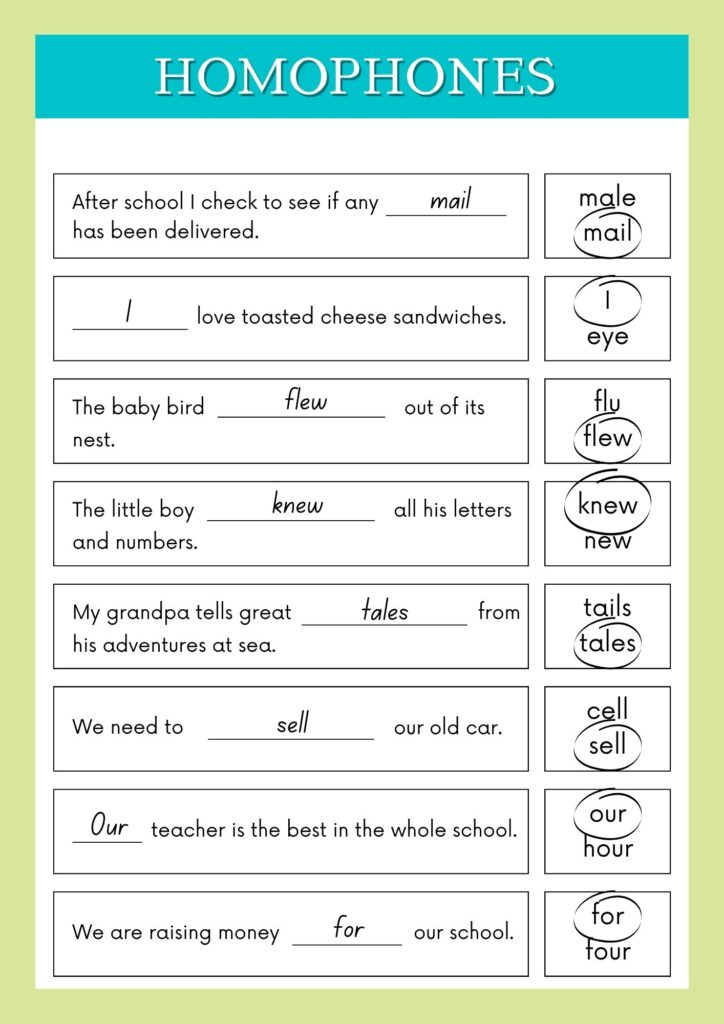
Tips for Remembering Homophones Easily
To remember homophones, create clear mental images or stories that connect words to their meanings. For instance, picture a pear next to a pair of shoes to tell apart “pair” and “pear.” Funny images help you remember better.
Use wordplay or puns like rhymes or silly sentences to make learning fun. For example, “The knight wore a suit of armor while he knew he was right.” These playful connections help you understand pronunciation and meaning, making it easier to use them in writing or speaking.
Example Sentences Using Homophones
1. I ate dinner at seven and finished by eight.
2. She couldn’t bear the pain, so she lay on the bare floor.
3. The buzzing bee landed on the flower just to be still.
4. He blew out the candle, and the room turned blue.
5. We need to buy some fruit by the market.
6. She said bye before she went to the buy-one-get-one-free sale.
7. I can’t hear you from over here!
8. He cut his finger, and blood came out of the vein in his vain attempt to fix the glass.
9. The teacher gave a lesson to help students lessen their confusion.
10. The knight rode into the forest at night.
What is the difference between homophones, homonyms, and homographs?
- Homophones: sound the same (e.g., pair / pear)
- Homographs: spelled the same, different meaning (e.g., lead metal / lead a team)
- Homonyms: can be both homophones or homographs — same sound or spelling with different meaning.
Are all homophones spelled differently?
No. Some homophones are spelled the same but have different meanings (like bat the animal and bat used in sports).
What are homophones in English?
Homophones are words that sound the same but have different meanings and often different spellings. Example: “flower” and “flour”.
Can one word have more than one homophone?
Yes! Some words have multiple homophones. For example:
- To, too, and two
- There, their, and they’re
Can homophones be proper nouns or brand names?
Yes. Some homophones include brand or place names. For instance:
- Knight (title) and Night (time)
- Wii (Nintendo) and We (pronoun)
